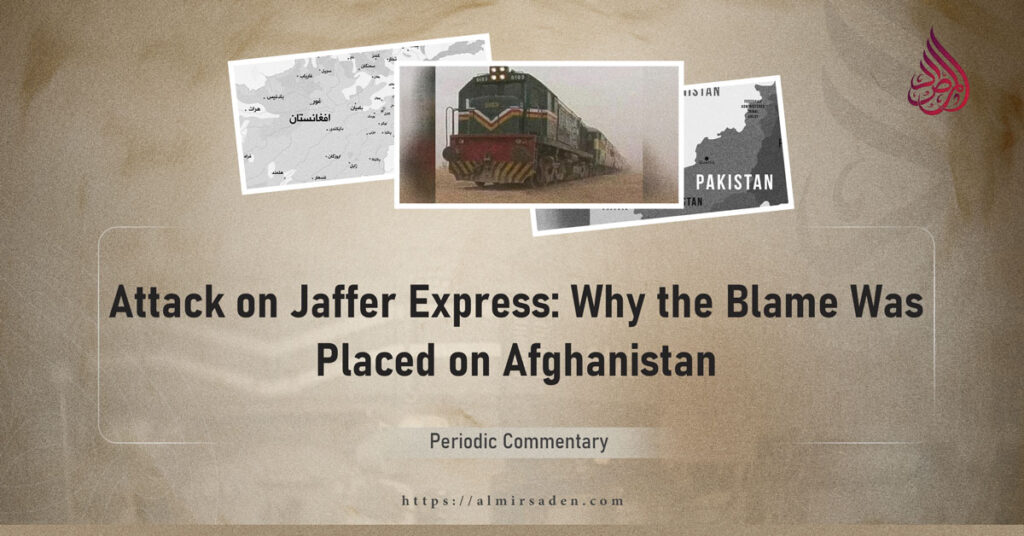Following the attack on the Jaffer Express in Balochistan, Pakistan immediately began circulating unfounded claims on social media, accusing Afghanistan of being behind the attack or alleging it had been planned there, with key figures involved residing in Afghanistan.
These baseless claims quickly became the official stance of the Pakistani government, with the spokesperson of the Ministry of Foreign Affairs reinforcing the narrative. Historically, the Pakistani state has consistently shifted blame for its failures onto others, a long-standing tactic employed by its military to mislead the public.
For decades, Pakistan has propagated the narrative that India supports Baloch separatists by providing them with logistical and political assistance. However, in this instance, Pakistan has redirected its accusations toward Afghanistan. What, then, are the underlying motives behind these unfounded allegations?
At the core of this fabricated story is a ‘popular narrative’ promoted by Pakistan’s intelligence agencies over the past two years. Their objective is to scapegoat Afghanistan for Pakistan’s failures and deflect domestic criticism. Furthermore, Pakistan aims to undermine Afghanistan’s evidence-based stance through a deliberate strategy of deflection and blame-shifting.
Reliable sources indicate that Pakistan has been explicitly informed that the attack on Shaheed Haji Khalil-ur-Rahman was orchestrated within Pakistan, with the attackers crossing into Afghanistan from Balochistan. Similarly, the assault on Kabul Bank in Kunduz was directed from Pakistan, with the perpetrators originating there.
Furthermore, all major attacks in Afghanistan over the past year were planned and executed from within Pakistan. Afghanistan has consistently shared evidence with Pakistan regarding these incidents. In response, Pakistan has countered by alleging that the mastermind of the train attack was based in Afghanistan.
Another crucial factor is the attack on Maulana Hamid-ul-Haq, carried out by ISIS, which placed Pakistan under significant scrutiny. The recent arrests of key ISIS leaders in Balochistan—particularly Sharifullah, whom Pakistan handed over to the United States, while negotiating the fate of others with Iran and Russia—have further intensified criticism. Concrete evidence and Pakistan’s actions confirm that it is engaging in a duplicitous strategy.
Afghanistan has consistently informed the international community about the presence of ISIS-Khorasan’s operational centers in Pakistan and the Pakistani state’s involvement in managing, controlling, and profiting from these groups. Afghanistan has actively exposed Pakistan’s role in these activities. In response, Pakistan has now retaliated by making unsubstantiated accusations against Afghanistan.
Furthermore, there is no factual basis for Pakistan’s claim that the Islamic Emirate of Afghanistan (IEA) supports Baloch separatists. The ideological foundation of the IEA is entirely distinct from the nationalist movement of the Baloch separatists. The Baloch struggle is rooted in ethnic nationalism, whereas the Islamic Emirate’s methodology and ideology are well-established and fundamentally different.
In conclusion, it is evident that Pakistan’s baseless allegations are a deliberate attempt to evade accountability for its failures, divert attention from the presence of ISIS-K within its borders, and maintain its relevance in international geopolitics—ultimately at the expense of regional stability and trust.
